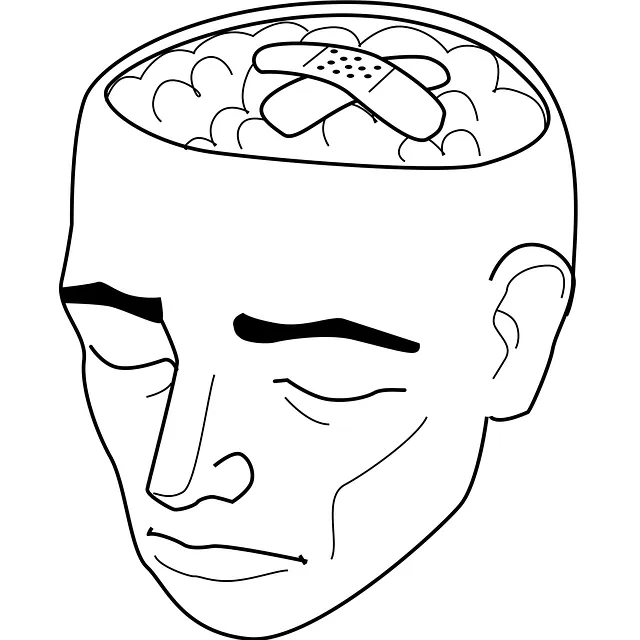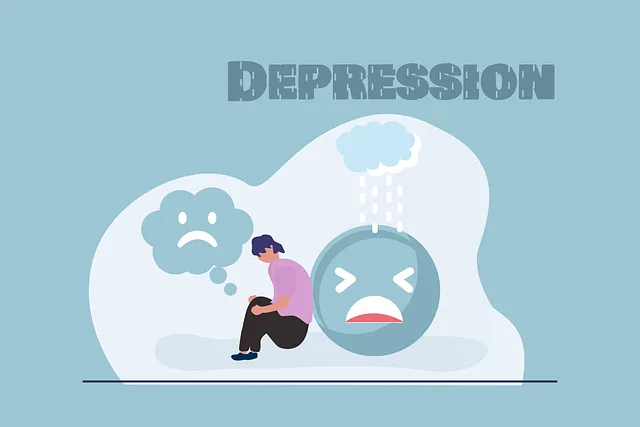The Broomfield Kaiser mental health programs emphasize holistic risk assessment and management, prioritizing client safety and well-being. Through comprehensive evaluations, these programs empower individuals with stress management tools and foster positive thinking. By integrating workshops, training, and podcasts, they enhance practitioners' resilience, communication, and job satisfaction, ultimately improving patient care and community mental wellness. Continuous professional development encourages adaptability to changing landscapes and ethical practices, ensuring effective care for diverse patient needs.
Mental health professionals regularly encounter clients facing diverse challenges, making risk assessment a vital component of their practice. This comprehensive guide explores effective strategies for managing risks, drawing from the renowned Broomfield Kaiser approach. We delve into identifying potential hazards, developing robust risk management plans, and continuous improvement processes. By implementing these evidence-based programs, mental health professionals can enhance client safety while fostering secure therapeutic environments, reflecting the core principles of the Broomfield Kaiser mental health initiatives.
- Understanding Risk Assessment in Mental Health Practice
- The Broomfield Kaiser Approach: A Comprehensive Framework
- Identifying Potential Risks and Hazards
- Developing Effective Risk Management Strategies
- Continuous Evaluation and Improvement for Mental Health Professionals
Understanding Risk Assessment in Mental Health Practice

Risk assessment is a fundamental component of mental health practice, enabling professionals to proactively identify and mitigate potential risks associated with client care. It involves a systematic process of evaluating factors that could negatively impact a client’s well-being, ensuring appropriate interventions are in place. By understanding these risks, mental health practitioners can deliver more personalized and effective support, fostering positive outcomes.
At Broomfield Kaiser mental health programs, risk assessment is a cornerstone of comprehensive care. These programs emphasize the importance of not only treating symptoms but also empowering individuals with strategies for stress management and anxiety relief. Through tailored assessments, professionals can identify risks related to client demographics, history of trauma, or co-occurring disorders, ensuring proactive measures are taken. This proactive approach promotes positive thinking and resilience among clients, fostering a safe and supportive environment for recovery.
The Broomfield Kaiser Approach: A Comprehensive Framework

The Broomfield Kaiser Approach offers a comprehensive framework for risk assessment and management tailored specifically for mental health professionals. This method emphasizes a holistic view, considering both individual and organizational factors that can impact a healthcare provider’s well-being. By implementing this approach, mental health programs can effectively identify potential risks and develop strategies to enhance resilience building among their staff.
This framework integrates various components such as self-esteem improvement workshops and cultural competency training for healthcare providers. It acknowledges the importance of fostering an environment that promotes open communication, peer support, and access to resources. These initiatives contribute to better stress management, improved job satisfaction, and enhanced patient care. The Broomfield Kaiser mental health programs’ focus on these areas ensures that professionals not only maintain their well-being but also deliver high-quality services with a greater sense of fulfillment.
Identifying Potential Risks and Hazards

Identifying potential risks and hazards is a cornerstone for any comprehensive risk assessment, especially within mental health professions. Professionals at Broomfield Kaiser mental health programs are exposed to a unique set of challenges that demand careful scrutiny. Beyond typical workplace stressors, they may encounter traumatic narratives from clients, manage complex diagnoses, and navigate sensitive ethical dilemmas. These experiences can contribute to secondary trauma, burnout, and emotional exhaustion, underscoring the importance of robust risk management strategies.
Leveraging resources like the Mental Wellness Podcast Series Production can offer valuable insights into mood management techniques and coping mechanisms for mental health professionals. By prioritizing their own mental wellness, practitioners can enhance their resilience, maintain boundaries, and ultimately provide more effective care. This proactive approach not only benefits individual well-being but also contributes to a healthier and more sustainable work environment at Broomfield Kaiser mental health programs.
Developing Effective Risk Management Strategies

Developing effective risk management strategies is paramount for mental health professionals to ensure the safety and well-being of both clients and themselves. At Broomfield Kaiser mental health programs, a comprehensive approach is implemented that integrates various components such as policy analysis and advocacy, education programs design, and production of mental wellness podcast series. These initiatives foster a culture of continuous learning and adaptation, enabling practitioners to stay abreast of emerging risks and best practices.
By leveraging Mental Health Policy Analysis and Advocacy, professionals can identify systemic vulnerabilities and advocate for policy changes that enhance risk mitigation. Similarly, Mental Health Education Programs Design equips them with the latest evidence-based interventions, thereby improving their ability to manage client risks proactively. Additionally, the production of Mental Wellness Podcast Series serves as a platform to disseminate information on risk assessment, management techniques, and personal resilience, further enriching the professional landscape and contributing to overall mental wellness within the community.
Continuous Evaluation and Improvement for Mental Health Professionals

Mental health professionals must embrace continuous evaluation and improvement to ensure they remain at the forefront of their field. This involves regularly assessing and updating their skills, knowledge, and practices based on emerging research and best practices. At Broomfield Kaiser mental health programs, for instance, ongoing professional development is a cornerstone of their approach. They encourage practitioners to participate in workshops, seminars, and training sessions focused on advanced techniques, cultural competency, and ethical considerations.
Through such initiatives, professionals can enhance their ability to understand and address the complex needs of diverse patient populations. Moreover, fostering emotional intelligence within these continuous evaluation frameworks is paramount. This involves not only recognizing one’s own emotional states but also cultivating empathy and understanding towards clients’ experiences. Such a holistic approach to professional growth contributes significantly to public awareness campaigns for mental wellness, enabling professionals to provide more effective care in an ever-evolving landscape of emotional intelligence.
Mental health professionals, by adopting a proactive approach to risk assessment using frameworks like the Broomfield Kaiser method, can enhance patient safety and their own resilience. Integrating continuous evaluation ensures that practices remain dynamic and responsive to emerging challenges, fostering an environment where both clients and practitioners thrive. The comprehensive nature of the Broomfield Kaiser mental health programs provides a robust foundation for identifying and mitigating risks, ultimately contributing to improved outcomes and sustainable careers in this vital field.






